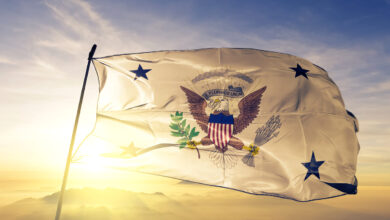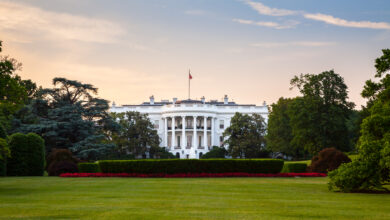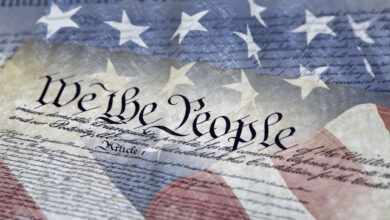How Far We Have Fallen: Reflections on George H.W. Bush

As a historian of the White House and in particular national security and foreign policy-making in the White House, it very early on became apparent to me that in those areas the George H.W. Bush White House set the high-water mark among all those of the post-World War II era.
This is true in part because of the results achieved-the graceful and effective management of the end of the Soviet Union/the Cold War, the re-unification of Germany, the effective, constrained management of the First Gulf War, and his attentive stewardship of America\’s leadership role.
But it was also true in ways that were less visible to the world. The NSC was broken during the Reagan Administration and in the end, Reagan was disconnected from the management of many critical issues. Bush entered the job with enormous experience.
Having been Vice President, CIA Director, US Ambassador to the United Nations and our envoy to China, he came into office with more foreign policy experience than any U.S. president in modern times (with Eisenhower\’s unique experiences as Supreme Allied Commander the potential exception to that.)
That experience drove home to him the importance of putting together the right team, a group of advisors not only with deep experience but who also would not hesitate to tell him their unvarnished views and challenge his if they thought it appropriate.
James Baker at State and Brent Scowcroft as National Security Advisor were the essential players on that team and it is no accident that both are still viewed as the best to hold those offices in all the years since. But not only were they skilled and smart, they were both close to Bush. Baker was like a brother. Scowcroft was one of Bush\’s best friends. Baker has already held high cabinet posts. Scowcroft had served once before as National Security Advisor–and he is still the only person to hold the job twice.
They agreed in advance on their roles. Bush was clear that he wanted advisors to provide him with real choices and that he did not want a rubber stamp process or one that pandered to his views. And even though they had strong personalities, they worked well together as a team.
They brought in equally gifted staff around them, many of whom would go on to senior posts themselves. And they created an atmosphere of professionalism and collegiality that is studied today because it shows how important chemistry is to the successful presidency.
Bob Gates, Scowcroft\’s Deputy and later Secretary of Defense, told me that they were so comfortable with one another that sometimes he would walk down the hall to the Oval Office late at night in stocking feet to pop in and get some real time guidance from the president.
They got along well. They were dedicated. They were experienced. They had clear goals. And they had the guidance of a president who knew how to be president and who understood global affairs. US voters have seemed to minimize the importance of this in the decades since.
No president since Bush has come to office with any material foreign policy experience (and indeed, neither Reagan nor Carter before him had much) and in every instance the learning curve those leaders went through was very costly for the United States.
Clearly, Bush and his team were hardly infallible. They made substantial mistakes from Central America to coddling the Chinese in the wake of the Tiananmen Square massacre. Bush’s pardon of six officials involved in the Iran-Contra debacle and the Willie Horton ad Bush’s campaign team ran were serious failures of judgment. But overall, the Bush team performed well-enough to be the model all study today.
It is tempting to focus exclusively on the collective experience they had when seeking to determine why they were so successful. But at the end of the day, the issue of character and human chemistry cannot be minimized as a factor in their success.
No such assessment can be made on the basis of any one member of the team, but the executive branch of the US government invests awesome power in one individual, the president, and therefore no individual has more influence on how the team at the top functions.
Those who worked with Bush commented to me constantly about his character–his decency, his kindness, his respect for all, his professionalism, his humor, his patriotism, his honesty, his strength when it was called for, and, in the end, his leadership.
Bush had a great team. But he brought it together and he led it with enormous distinction. He was a statesman, achieving a level of mastery in that regard that few if any American presidents ever do. And it is impossible to note at this precarious moment in US history how the gifts and traits that brought him the successes he earned for us all are so absent in the corrupt husk of a man who currently occupies and is daily diminishing the office George H.W. Bush once held.
Our 41st president is now gone. But fortunately for all who will follow him and for all of us, his example, warts and all, and that of those who served with him will remain as a guide and a source of powerful lessons into how a White House can and should work.




